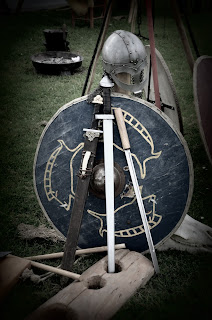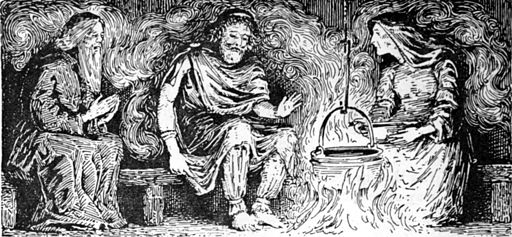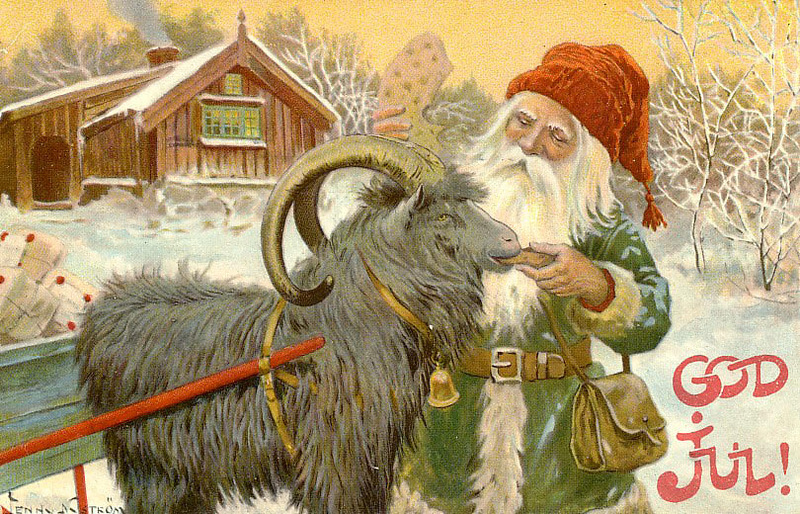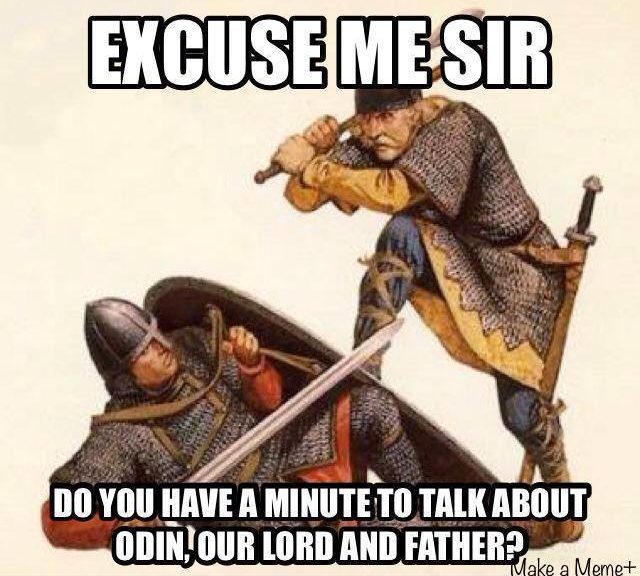 If you’re like me, chances are you have Christian relatives who celebrate some form of the Christian holiday of Easter. If you’re the only Heathen in your family, you may get an earful about what is considered the most holy time that Christians celebrate. Still, unless you’re looking to cut ties with your family–and I don’t recommend that–you may be looking for ways to enjoy the Easter celebrations. If you’re a Heathen who loves to get into fights with family members over Christian holidays, or at least not willing to put aside your differences for one or two days, this post isn’t for you.
If you’re like me, chances are you have Christian relatives who celebrate some form of the Christian holiday of Easter. If you’re the only Heathen in your family, you may get an earful about what is considered the most holy time that Christians celebrate. Still, unless you’re looking to cut ties with your family–and I don’t recommend that–you may be looking for ways to enjoy the Easter celebrations. If you’re a Heathen who loves to get into fights with family members over Christian holidays, or at least not willing to put aside your differences for one or two days, this post isn’t for you.
Let’s take a look at some of the ways you can get involved with minimal headaches.
Put Your Pride on the Back Burner (or Don’t be an Asshole)
Unless you have an extremely open-minded family/extended family, most of them are going to take a dim view of you not being Christian. I’m sorry, but that’s the truth. They’ve been indoctrinated into the Christian belief system, and it’s unlikely you’re going to change their minds. You’re going to the Christian hell, and that’s all there is to it, (unless they can persuade you into the fold/back into the fold), and they really don’t get why you would worship pagan gods. At this point, all you can do is grit your teeth and hope to get through the Christian talk without losing your cool.
That being said, understand that this is a Christian holiday, even if they took on the pagan trappings surrounding it. Easter is considered to be more important to the Christian religions than Christmas, so realize that you are the outside here. It is you who is extended the olive branch, not them. So, don’t expect for them to understand/accept you being Heathen in their most holy time.
Because this is their most holy time, mentioning the appropriation of Eostre’s holiday at the Easter dinner is probably not going to do you any favors. Yes, they eat ham, which honors Freyr, but let it slide. Yes, they decorate eggs. Yes, they associate chicks and bunnies with Christ’s death and resurrection, but pointing out the incongruity of it all won’t cut it. If we want to maintain the peace in our celebrations, it is better to sit and listen rather than fight a foolish battle. This is their Easter–not ours, so let’s respect their religion, just like we’d want them to respect ours.
So, What Can You Enjoy?
At this point, you’re wondering what you can enjoy out of Easter. There are a lot of cool things you can do and still be part of the Easter celebration. Here are some of the things I recommend.
Egg Coloring
We color eggs for springtime, so there’s no reason why you can’t enjoy coloring eggs with your Christian family. Talking about spring and its renewal, as well as the cycle of life, is fairly safe.
Easter Egg Hunt
Why not hold an Easter egg hunt? Put together some of those plastic eggs and fill them with goodies. Hide them and watch as your family searches for them. You’ll all enjoy it.
Chicks and Bunnies
Whether live, toy, or simply drawings, the images of chicks and bunnies are pretty much safe territory. You may want to talk about the Oschter Haws which was brought into Pennsylvania by German settlers. Avoiding the Urglaawe references, your Christian family may be delighted to learn that that’s where the Easter bunny who laid colorful eggs came from.
Easter Candy
Easter candy originates from clever marketing by candy makers in the 19th century to capitalize on an untapped market. There’s no reason for you to mention this, nor is there any reason why you can’t have some yummy candy in pagan symbols such as rabbits, chicks, and eggs.
Easter Brunch or Dinner
Never turn down a good feast, even if it’s in honor of a god you don’t follow. All the trappings are Heathen, or at least, pagan, so enjoy spending time with family and friends. You may want to even bring some mead so your family may enjoy something a little different than the traditional grape wines. Toast to your family and to those family members who are no longer with you. You’ll be honoring the ancestors and still not offend your family.
Talk about Family, both Present and Past
Speaking of family, strike up a conversation about your family and your ancestors. Talk positively about them, or if someone in the family knows a particularly good story about an ancestor or a relative who is alive, encourage them to relay that story. As the good Doctor says, “We’re all stories in the end. Just make it a good one.”
Listen to Your Family, Even if You Disagree with Them
If your family starts talking about Christianity, listen to them. You don’t have to agree with them, but when they tell you about their faith, they tell you about themselves. Ask questions. Ask why they believe what they believe, and don’t argue with them over their beliefs. You may discover that your mom believes in the Christian god because she finds comfort in a god who promises to care for her. Or your dad might actually not believe in the god but goes to church because the family does it. Or maybe your cousin is an atheist at heart. You can learn a lot about your family just by listening.
Go to Church with them
This suggestion is somewhat dangerous when it comes to family, not because you’re likely to change your faith, but more likely because you may offend or get into an argument with a family member. Some Christians, most notably Catholics, have rules against participating in sacraments such as the Eucharist (the bread and wine) because they believe you must be of their denomination to participate. (It has to do with transmogrification, but that’s another long post.)
Why go to church with your family? Well, first it puts you on the same page as your family members so if they discuss the sermon, you know what was said. Secondly, you can see Christianity with all its pagan influences. Third, churches often have amazing artwork that is worth seeing.
Just sit and watch as they go through sitting, kneeling, and standing routines. Listen. It may seem worthless, but in a way you are gathering intelligence about this religion. That way, you understand your family’s behavior a bit better.
Take Time Out for Our Gods, Wights, and Ancestors
I’ve given you ideas for keeping the peace with your Christian relatives. But this isn’t about Heathenry, it’s about keeping the peace in your extended family. Before you join in the Easter festivities, make an offering to the gods, especially Frigga and Frau Holle, the wights, and your ancestors for a peaceful gathering. And thank them after the day for their help, especially if things went successfully.
Hopefully, I’ve given you ideas for staying sane around Christians during their holiday. If, in the end, you do decide to try out some of these ideas, I’d be interested to learn how they worked out.
—
If you enjoyed this post, consider becoming a patron of The Rational Heathen. For about the cost of a Starbucks’ coffee a month, you can get information not on the blog as well as early releases of the post such as this one. There are other levels of support as well, so feel free to check it out. What’s more, you only pay for the posts you get. So, if I don’t produce anything, you don’t owe anything. It’s a great way to encourage me to write, and to produce really cool things. Join up at Patreon and become The Rational Heathen’s patron!

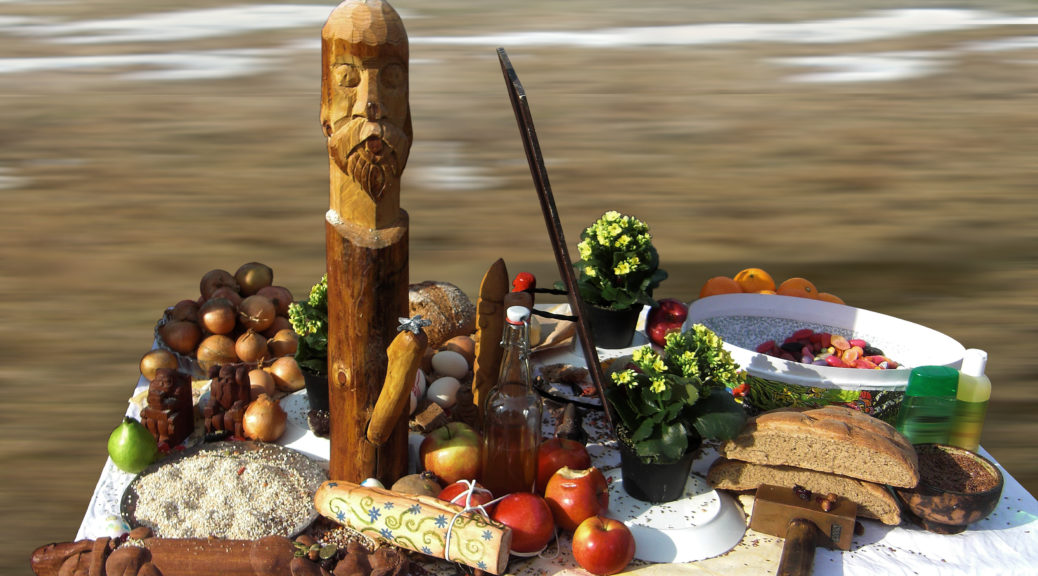
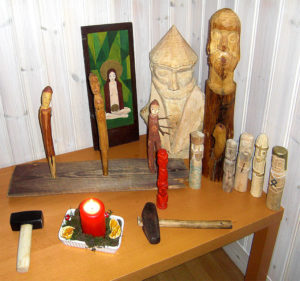 It’s been about six years since Tyr and Thor first entered my life as Norse gods and I’ve entered Heathenry. (Tyr has been in my life for years, only I didn’t recognize him.) I’ve been thankful they’ve done so because they’ve offered a a new perspective on my life that I had not gotten any other way. I still deal with a number of really stupid issues due to Christianity that I brought with me, but I can feel a certain amount of healing going on that I just didn’t have with the other religions, and lack of religion.
It’s been about six years since Tyr and Thor first entered my life as Norse gods and I’ve entered Heathenry. (Tyr has been in my life for years, only I didn’t recognize him.) I’ve been thankful they’ve done so because they’ve offered a a new perspective on my life that I had not gotten any other way. I still deal with a number of really stupid issues due to Christianity that I brought with me, but I can feel a certain amount of healing going on that I just didn’t have with the other religions, and lack of religion.
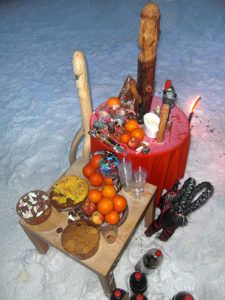 I’ll say it right up front that those who claim to “know” how Heathenry should be is full of shit. Sure, we have some good ideas how some of our ancestors practiced Heathenry, but overall,
I’ll say it right up front that those who claim to “know” how Heathenry should be is full of shit. Sure, we have some good ideas how some of our ancestors practiced Heathenry, but overall,  Even if we somehow magically figured out everything about Heathenry in the ancient times, would we really want to mimic it? If you say “yes” then apparently you want to bring back human sacrifice, and
Even if we somehow magically figured out everything about Heathenry in the ancient times, would we really want to mimic it? If you say “yes” then apparently you want to bring back human sacrifice, and 
 Easter has never been my favorite time, largely because it’s a Christian holiday that is pretty much a celebration of their death-cult god. Even when I was growing up, other than getting Easter baskets with lots of yummy chocolate, all I remember is having to get dressed up and go to church and afterwards a brunch that was maybe okay. (Never mind the fact that ham was the main dish, ahem…in honor of Freyr.)
Easter has never been my favorite time, largely because it’s a Christian holiday that is pretty much a celebration of their death-cult god. Even when I was growing up, other than getting Easter baskets with lots of yummy chocolate, all I remember is having to get dressed up and go to church and afterwards a brunch that was maybe okay. (Never mind the fact that ham was the main dish, ahem…in honor of Freyr.)
 Go Have Fun While the Christians are in Church
Go Have Fun While the Christians are in Church
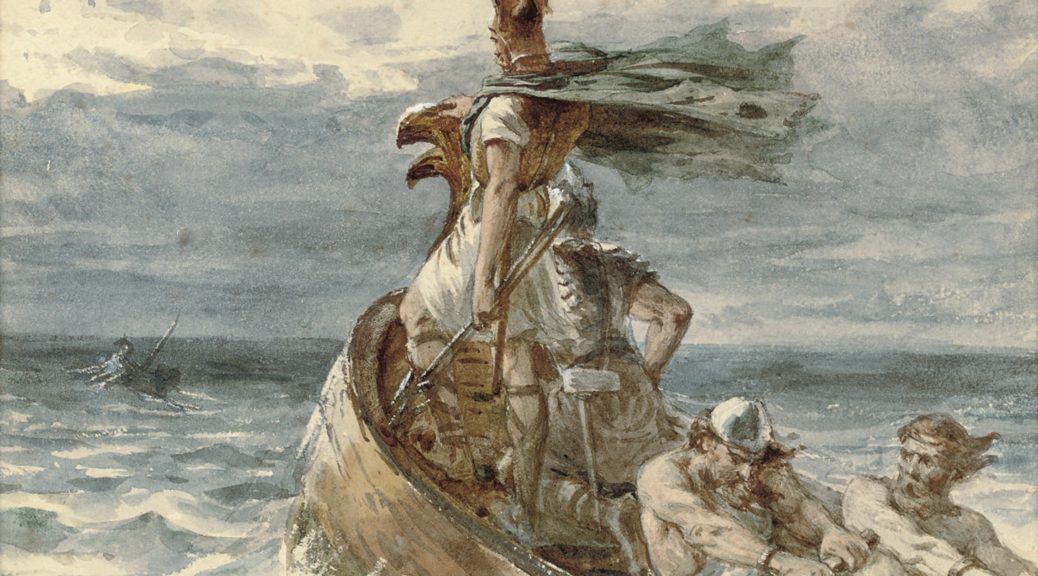
 Our medieval and Viking ancestors were a prejudiced lot. They routinely attacked, enslaved, and killed people who weren’t like them. Furthermore, there was a lot of fear associated with those who were not like them. Does this sound familiar?
Our medieval and Viking ancestors were a prejudiced lot. They routinely attacked, enslaved, and killed people who weren’t like them. Furthermore, there was a lot of fear associated with those who were not like them. Does this sound familiar?